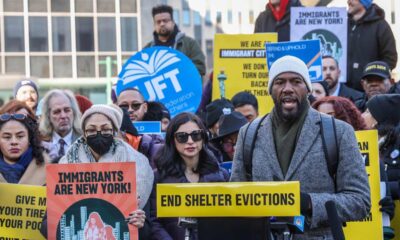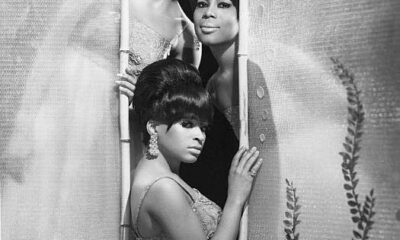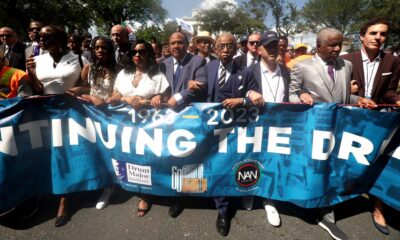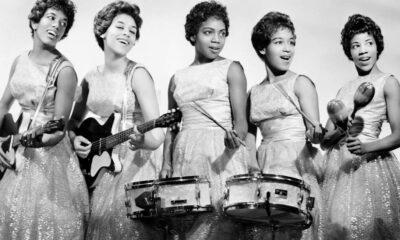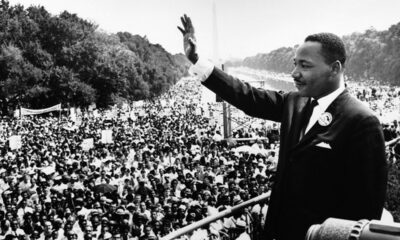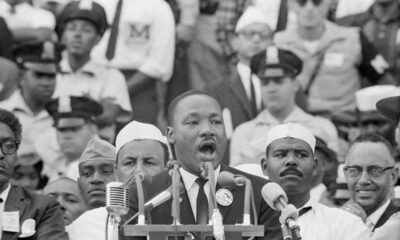Black History
Soundtracks Rediscovered: Unsung Stories, Now Sung and The March on Washington 1963

Historical moments of the 1960s revolved around the Civil Rights efforts for social justice, jobs, and freedom from oppression. The soundtrack of those years was mixed and memorable: rock and roll, pop, jazz, and among others, the girl-group sound. The range covered all genres revolving around political songs, and also songs that spoke directly to the people, and artists movements and music of the 1960s and, particularly on August 28, 1963, the day of the March on Washington for Jobs and Freedom.
Dr. King ignited a movement with the words — themselves like a symphonic composition — he penned for his “I Have a Dream” oratory, the framing for his “The March on Washington for Jobs and Freedom.” As gospel singer Mahalia Jackson urged him on, Dr. King Jr. woke up America with words every man, woman, and student in the world would understand and feel. And he would speak them as no one else could. It was a masterful moment — one he probably understood would ignite a movement. Dr. King had one chance to get it right. And he did.
But there are some who would say the March actually came to life during a song and spoken word (if you describe James Baldwin and Dick Gregory in those terms), 23 days earlier on Tuesday, August 5 in Birmingham, Alabama, at Miles College.
There are many stories in years and eras gone by that have never been told, forgotten, or just buried. But in recent years, none so poignantly as the real voices telling real stories as those, in the new book “But Will You Love Me Tomorrow?” by Brooklyn writers Laura Flam and Emily Sieu Liebowitz. It is an oral history of the 60’s women of the girl groups and more. It also corrects the labeling of these women as cute singers without much to say.


Beverly Lee of the Shirelles, a group formed in 1957 in New Jersey where she still resides, told us during an interview, that she, Shirley Owens, Doris Coley, and Addie “Micki” Harris, loved their audiences and showed up when they were called, many times to “to help out” for little or no compensation. Represented in the book are other “famous and unforgettable acts” with unforgettable stories like The Ronettes, the Chantels, the Crystals, the Blossoms, the Chiffons, and others. Their voices are in the book which thankfully does not shy away from the uncomfortable about an industry that failed, during that era, to give artists of color their due.
It was Beverly who called our attention to the photograph on this page taken at the fundraising event in which The Shirelles awed the crowd of thousands attending at $5 each. She says in the book: “When I saw the picture with Dr. King to my side, my heart just went out of my body. Tears came down. It was one of the proudest moments of my life.” She recalls the event was heavily guarded.
Our Time Press upcoming interviews with singers from that era will highlight how the stories were never told about that march or that music will be presented during September. While the dream of Martin, a be-bop enthusiast (“Jazz is life!”, the Charlie Parker fan, once said) ignited a world movement for change on August 2, 1963, to some, the dream came alive on that night, when thousands, at $5 per, came out and stood for hours to hear top, world-class entertainers perform for them and Dr. King raising needed dollars for the march to come.
It was there that women held some of the spotlight — Ella, Nina, and The Shirelles. Some of King’s favorite performers, also including Dick Gregory, Ray Charles, Joe Louis, Johnny Mathis, and Billy Taylor converged in Birmingham under some challenging circumstances to support King’s Salute to Freedom fundraiser of August 5, 1963, which helped to finance the August 28 event. And they took the stage under some of the most grievous conditions, including racism. One musician, Richard Dubin, recalls in the book, “I don’t get why there isn’t more writing about it, more of an understanding of how significant it was. Its purpose was to raise money for the March on Washington.”
Dr. King’s Salute to Freedom ‘63 fundraiser, the first integrated event planned in the wake of the Birmingham Truce which ended the campaign of public demonstrations that spring. It also tested the Birmingham City Council, which had repealed its segregation ordinances, a few weeks before the concert.
Reverend A.D. King and the Southern Christian Leadership Conference helped with local preparations: 500 volunteers handled publicity and ticket sales “in the face of a virtual blackout by city officials and the local press.” The black radio stations broadcast the event and word-of-mouth, resulting in overflow attendance despite segregationists’ threats of violence to the organizers and their local collaborators.
Joey Adams, President of the American Guild of Variety Artists, brought most of the performers, along with members of the press, aboard a chartered flight from New York, dubbed the “Spirit of 76” for the number of people aboard. Radio City Music Hall, nightclub owner Maurice Uchital, and a number of union officials and private citizens underwrote the charter. Max Asnas of the Stage Deli donated food and beverages for the flight. Ray Charles and his orchestra and crew chartered a separate flight.
When cab drivers and hotelkeepers refused service to the visitors, SCLC volunteers stepped in as drivers. Nearly the entire group was accommodated at the A.G. Gaston Motel and rehearsals were held at a high school auditorium.
The event, was scheduled at the Municipal Auditorium, but a conflict with an unannounced “repainting” led to the event being canceled. After the loss of the theater box office, sales were handled at the Temple Pharmacy and the Gaston Motel. Paul Greenberg, a political organizer who had joined the SCLC as King’s assistant, handled mail-order tickets from the motel.
Miles College president Lucius Pitts contracted for a stage to be constructed and lights rigged up at Miles College’s football stadium. Students and workers spent the next day, in 90-degree plus heat, building a stage and a tent. When the Birmingham Police Department declined to provide security, The Alabama Christian Movement for Human Rights arranged for armed civil defense guards to serve.
With an entire football field and no seats, ticket sales were opened, and the word was sent out for attendees to “Bring a Chair for Freedom”. Some 20,000 tickets were sold for an event that was expected to draw 5,000. Approximately 16,000 attendees began arriving at noon for the 9:00 PM event, with a line stretching a half mile or more. Floodlights were set up along the route for fear of attacks by protesters. Toilet facilities were not provided. WNEW-FM deejay William B. Williams emceed the show.
- Bernice Elizabeth Green


